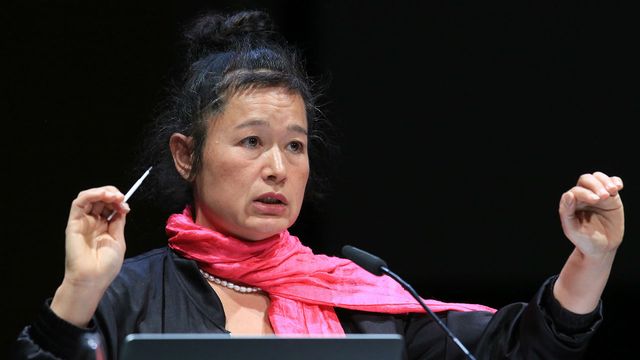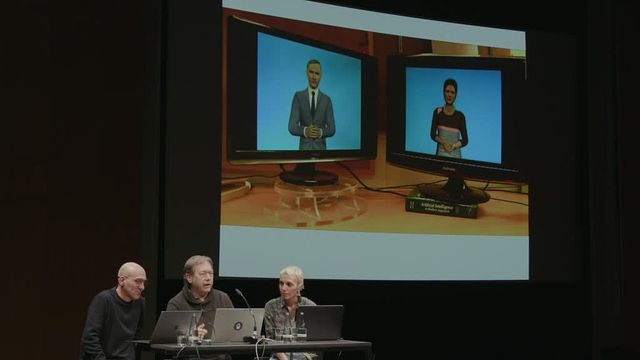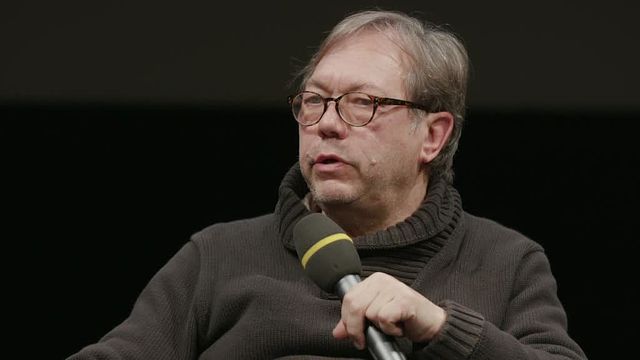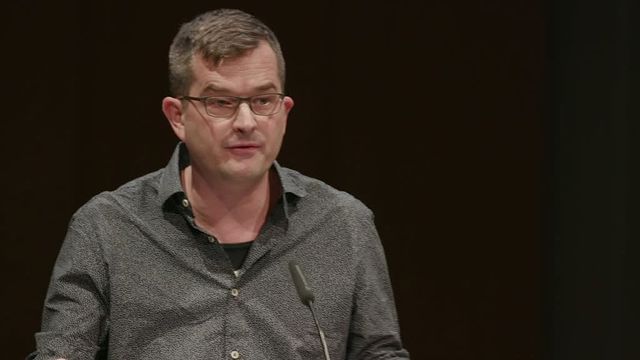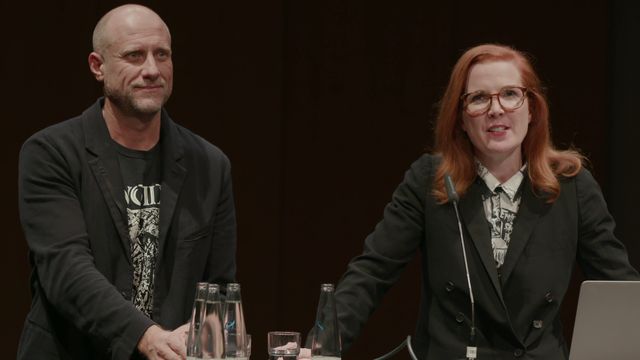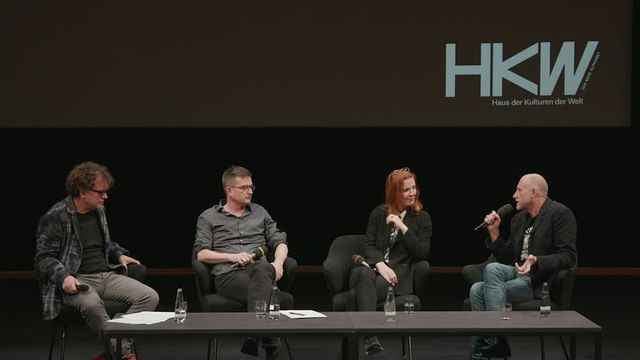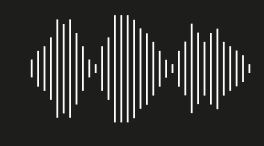Lecture Performances, Lectures, Discussions
Stop Making Sense
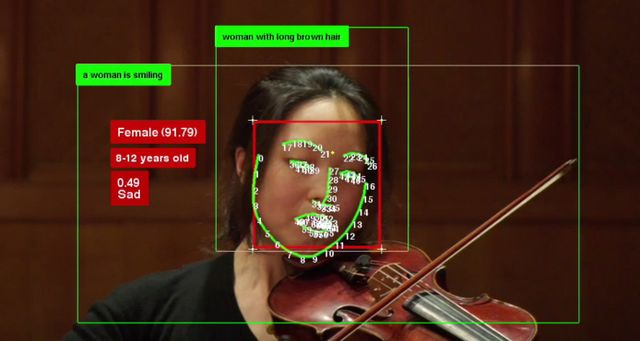
From language development for artificial intelligence to blockchain structures, the recognition of patterns and laws is the basis of many technologies. They reproduce the biases, worldviews and property structures of the societies from which they “learn.” Are self-determination and decentralization nonetheless possible in technological development? Who controls the protocols of algorithmic infrastructures? How can we organize politically within them? Reflecting on the work of one of the world’s leading AI developers, Luc Steels, artistic and activist positions engage with technological language development and ask for new forms of political organization to negotiate linguistic commons.
Moderated by Bernd Scherer (director of HKW)
Curated by Bernd Scherer and Olga von Schubert
Program
3 pm–3.30 pm
The Language of Broken Glass
Hito Steyerl(filmmaker), Bernd Scherer
Presentation, conversation
Hito Steyerl explores the ways in which Artificial Intelligence affects our urban environment and how alternative practices may emerge through pictorial acts in the public space. Her new work The City of Broken Windows (2018), premiered at Castello die Rivoli near Turin, revolves around the process of teaching AI how to recognize the sound of breaking windows. In conversation with Bernd Scherer the artist presents this site-specific film installation.
3.30 pm–4 pm
Language is a Slippery Thing
Luc Steels (AI scientist and opera composer)
Lecture
A language used to be thought of as a more or less fixed system with a universal, possibly innate underlying structure. But on closer examination, a language is like a river, always changing and fluid. How can we study this highly dynamic object? The talk will first give an impression of the fascinating experiments in language evolution that have been taking place over the past few decades, some of them in the context of art exhibitions. Then Luc Steels will look at how and why social media and AI technology have recently given rise to language abuse that exploits disinformation, divisive discourse, and post-truth conspiracy theories. We have to ask the question: What is the influence of technology on this important shift in human discourse. How is it changing language and the use of language? Will language lose its ability to convince others through argument and to speak the truth? How can we regain this precious tool that is essential for keeping coherence in our society?
4 pm–4.30 pm
Language Agents
Luc Steels in conversation with Giulia Bruno (artist) and Armin Linke (artist)
A film about Artificial Intelligence, robots, language games, and the characteristics of non-human communication. Giulia Bruno and Armin Linke visited the Belgian scientist and artist Luc Steels in his archive, and have brought together and commented on his extensive research material in a video installation. Steels’s pioneering Talking Heads Experiment, conducted between 1999 and 2001, allowed robots, independent of centralized human input, to develop their own common vocabulary, which was then further developed through interaction with “human intelligence.” In their lecture performance, Giulia Bruno and Armin Linke provide an insight into their film project, which is installed in the exhibition hall in full length.
4.30 pm–5 pm
Discussion and Q&A
5.30 pm–6 pm
If Everything is True—Knowledge and Manipulation
Felix Stalder (media and cultural theorist)
Lecture
Digital technologies provide the means to apprehend the rapidly growing complexity of our modern day, and render it accessible to human perception. Yet, at the same time, they destabilize our relationship to the world, since many of these new tools not only privatize knowledge but also instrumentalize it. This is not about the truth, not even about predicting the future, but about altering the trajectory of the future. We are at an impasse. Traditional methods can no longer address the problems, and new methods are under the tight control of just a few players who are pursuing their own security-related and economic objectives. Fresh courses of action could emerge if we were able to embed these tools explicitly within the existing social and ecological complexity, instead of striving to manipulate reality from the outside.
6 pm–6.30 pm
Datafication of Science
Kate Crawford (Distinguished AI Scholar) and Trevor Paglen (artist)
Lecture
Are Artificial Intelligence and Machine Learning really the right metaphors to address training sets that feed into automated processes? Kate Craword and Trevor Paglen look into the production of training data and uncover the historical origins, labor practices, infrastructures, and epistemological assumptions, with biases and skews built into them from the outset. Departing from these observations they ask: Is there a possibility for decentralized, vernacular AI? How does computational centralization relate to reduction?
Blockchain as Coded Infrastructure
Simon Denny (artist)
Lecture
In recent years, cryptocurrencies like Bitcoin and the blockchain ledger they employ have fueled the imagination of an “alternative Web” or third Web based on decentralization of (monetary) power, direct-democratic governance, and access. Simon Denny’s work challenges the idea of “decentralization” within Crypto economics, and questions whether Crypto’s coded infrastructure might still employ the same logics of centralization; rendering social and political needs computational and abstract. In this talk, Denny tracks some examples of prominent figures and companies that he has unpacked in his artworks and questions whether Crypto and associated technologies could enable a continuation of dominant economic paradigms rather than a rupture from them.
6.30 pm
Discussion
Kate Crawford, Trevor Paglen, Felix Stalder, and Luc Steels, moderated by Bernd Scherer
